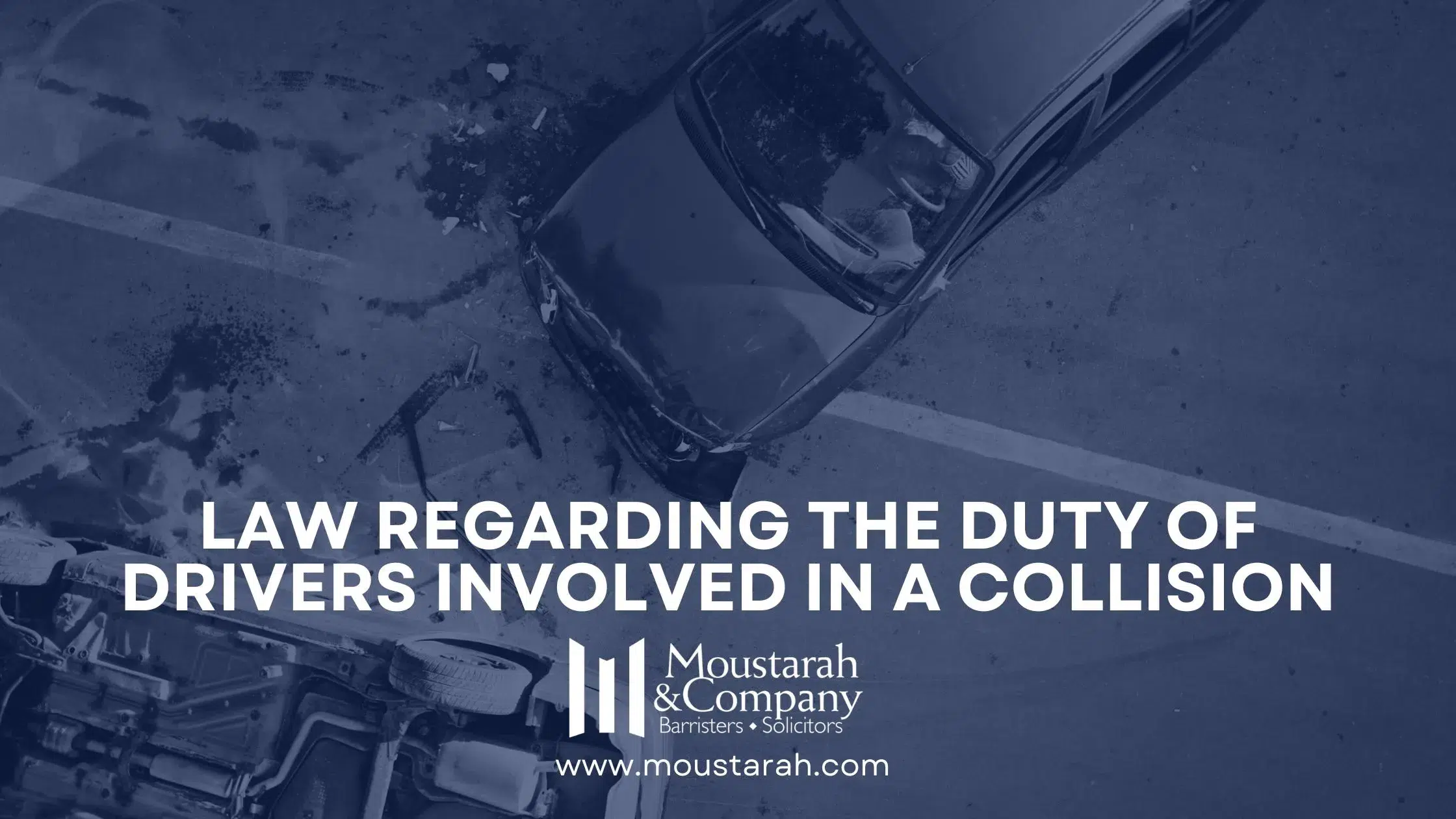
Duty of Drivers Involved in a Collision
Collisions are an unfortunate hazard of driving a vehicle. In Alberta, when a driver is involved in a collision, they have several legal duties under the Traffic Safety Act. Generally speaking, a driver must remain on the scene and provide assistance and information to other involved persons. A driver may even have to provide a written report to the police.
Basic Legal Duties When Involved in a Collision
When involved in a collision with another vehicle, no matter how serious that collision is, a driver must:
- remain at the scene of the accident (or return if they had left); and
- render all reasonable assistance
Additionally, if anyone sustained loss or injury, drivers must produce the following information to the other drivers, injured persons, witnesses and the police, if requested:
- name and address;
- operator’s licence number;
- the name and address of the registered owner of the vehicle;
- the licence plate number of the vehicle; and
- insurance information ( financial responsibility card).
It is an offence to fail to comply with any of these obligations.
Collision with an Unattended Vehicle or Other Property
A collision can occur when only one vehicle has anyone in it (example: a driver hits an empty parked car in a parking lot). The law requires the driver involved in a collision with an unattended vehicle to locate the owner or person in charge of the vehicle and notify them of:
- their name and address;
- their operator’s licence number; and
- their license plate number.
If the owner or other person in charge of the unattended vehicle cannot be located, then the information can be left in a written note. Such a note must be left in conspicuous place in or on the unattended vehicle. It is an offence to fail to provide any of this information.
Similar laws apply to collisions occurring between vehicles and other types of property. For example, a driver who runs into a fence would have similar duties to locate and notify the person in charge of the property. A driver who hits a light standard or traffic sign must report the incident to the police.
Collision Reports and Police
Generally, a driver involved in a collision must provide a report to the police. This requirement under the Traffic Safety Act is an exception to the general right to remain silent. However, if no one is injured, or dies or if the property damage is under $2,000 then the driver does not have to provide such a report.
A large number of legal issues arise when communicating with police. For example, a driver might admit to certain things which result in them being charged or convicted of an offence. They might also make statements that expose them to civil liability. Therefore, it is important to seek legal advice before communicating with the police and providing them with a collision report.

